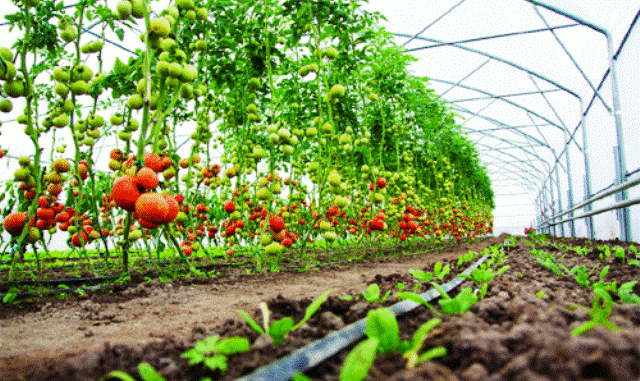Horticulture is one of the most lucrative industries in the world today. Especially with advancements in technology greater yields and short maturation periods can be achieved and many more. Anyways, there is plenty of land for farming activities in the country. This makes it easy to conduct horticulture initiatives. A Netherlands-based company called PUM has entered into a partnership deal with ZimTrade. PUM is an organization of volunteers mainly comprised of experts and executives that are now in retirement. ZimTrade specializes in stimulating and enhancing export growth in Zimbabwe. Herein I shall look at the deal and other related important things to discuss.
The Memorandum Of Understanding (MoU)
An MoU has been signed between ZimTrade and PUM. The project will run as a pilot between now and 2023. During this period 3 model farms will be equipped with the necessary capabilities to produce horticulture produce suitable for export. In the long run these model farms shall be rolled out all across the country. The MoU covers areas like infrastructural development, earmarking and improving certain farms, equipping people with the necessary skillsets, transport and logistics and aspects regarding markets.
Let us for a moment discuss a bit on the model farms. This is a project that has actually been on-going since the beginning of this year. The crux is to capacitate small scale farmers to grow horticulture produce for the export markets. So far 3 medium-size farms are currently going through this initiative; one in Midlands, one in Mashonaland East and the other one in Mashonaland West.
This MoU will depend somehow on the government in some way. For the stipulated elements in the MoU to be realized government must ensure associated policies are consistent. There is also a need for transparency in putting those policies to work. All the necessary support from government will be paramount especially keeping farmers at ease by ensuring stable farm ownership. It was highlighted by the Netherlands that the 99-year land leases must be a guaranteed tool for stable farm ownership. The Dutch embassy shall also be a key player in the fruition of this MoU. They will be largely responsible for bankrolling operational aspects to do with the MoU.
Why The Netherlands Is Ideal For This MoU
This is not the first time that ZimTrade and PUM have signed an MoU. Their first one was signed 3 years ago. You probably might wonder why Netherland right. Well, Netherlands is an excellent party to this partnership not only because they have the finances but because they wield tried and tested experience in horticulture. In fact, the Netherlands is passionate about impacting its horticultural acumen on other nations.
First of all, about a tenth of the Netherlands’ GDP is from agriculture. Under that domain, horticulture is the most dominant area of specialization. Water usage in agriculture has been lowered a whopping 90%. The elimination of pesticides in greenhouse farming (which is the common way of growing horticulture produce there) has been so significant. It is so marked that the use of pesticides is nearing non-existence. Globally, the Netherlands is the second biggest exporter after the USA when it comes to horticulture produce. Annually, they export around US$72 million worth of horticulture produce. Now get this, the physical size of Netherlands is roughly a tenth of Zimbabwe’s. This is a testament to how the Netherlands has established itself as an authority and reputable player in horticulture.
Having said all that it is apparent why this MoU with PUM will be beneficial to us. We will not only tap into their financial resources but we will also enjoy their vast wealth of practical, tried and tested knowledge. Ultimately this will go a long way in increasing foreign currency earnings through exports made to the Netherlands.
It always amazes me how very tiny countries can be so innovative to a point where they financially eclipse large countries. I have explored this narrative before when I once did a comparative analysis between Zimbabwe and Israel. Such things should make us reflect as a nation on the untapped potential that we are sitting on. Consider this Netherlands example; they do not have enough land so what do they do? They go to invest in a nation where land space is abundant (in this case Zimbabwe). As much as they are creating employment and contributing to economic development here they are benefiting their home country in the process. That is being very enterprising and it is something to emulate. Overall, Zimbabwe is an endowed nation and when other nations come to sign MoUs like these with us it is proof of that.








